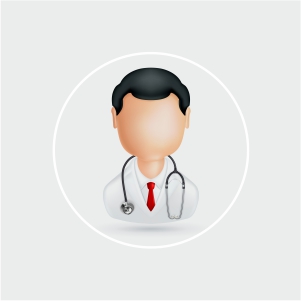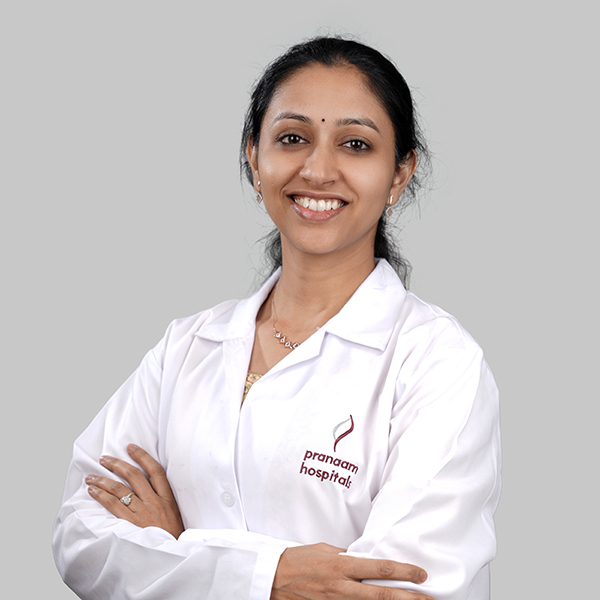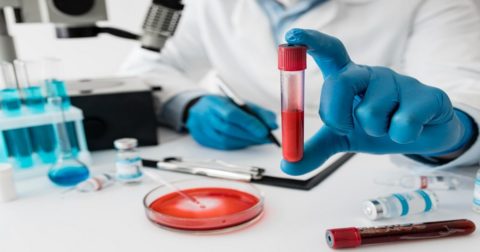Pranaam Hospital > Physiotherapy
Best Physiotherapy Hospital in Hyderabad
Helping you spring back into action
From small niggles to developmental concerns to surgeries, your child’s in the safest of hands.
Physical weakness or vulnerability due to an underlying health condition or after surgery, resorts to the mental, physical and emotional decline of a patient. At Pranaam, our expertise in physical rehabilitation extends to various disciplines including orthopaedics, cardiology, oncology, gynaecology, paediatrics, sports medicine, general surgery and more, aiding patients of all ages who suffer from different ailments.
Our state-of-the-art facility boasts of the finest, fully equipped physical rehabilitation areas that provide premium quality pre-operative and post-operative physiotherapeutic care that meet the highest national and international standards.
Accompanied by top physiotherapists and specially trained staff who provide comprehensive treatment and care using a multidisciplinary approach and with expert opinions from specialists across various disciplines, Pranaam aims to help our patients rebuild their physical lives with ease.
Conditions We Treat
This refers to the pain that radiates along the path of the sciatic nerve, which branches from the lower back through the hips and buttocks down to each leg. Sciatica usually affects one side of the body and commonly occurs when a herniated disc, bone spur of the spine or narrowing of the spine compresses part of the nerve, causing pain, inflammation and often numbness in the affected leg.
Cervical spondylosis is age-related wear and tear affecting the spinal discs in your neck. There are several causes for this condition that include dehydrated discs, herniated discs, injury, ligament stiffness or overuse.
Symptoms may include tingling, numbness or weakness in arms, legs, hands or feet, lack of coordination, pain while standing, sitting, coughing, sneezing or tilting the head backwards.
Adhesive capsulitis otherwise known as a frozen shoulder is characterised by stiffness and pain in the shoulder joint. Symptoms may arise gradually and worsen over time if it’s left untreated.
Bell’s palsy is the temporary weakness of the facial muscles which makes half of the face droop and prevents one of the eyes from closing. This may be caused due to swelling or inflammation of the nerves that control the facial muscles or as a result of a viral infection. For most people, this problem will subside within a period of a few weeks to about six months to make a full recovery. However, a small portion of patients continue to suffer from this condition for life.
A common form of arthritis occurs when the cartilage that cushions the ends of the bone wear down over time resulting in excruciating pain. This can damage any joint in the body but commonly affects the hands, knees, hips and spine.
Rheumatoid Arthritis is a chronic autoimmune disorder that affects the lining of the joints and sometimes skin, eyes, lungs and blood vessels, causing painful swelling. Other symptoms may include fatigue, fever, loss of appetite and joint stiffness.
Muscular Dystrophy is a culmination of a group of diseases that cause weakness and loss of muscle mass. This condition is due to the interference of abnormal genes affecting the production of proteins required to form healthy muscles. Commonly seen during childhood, it can progress towards adulthood mostly in boys and rarely in girls.
Chest physiotherapy consists of techniques that allow the expansion of the lungs, strengthening of the breathing muscles and improved drainage of lung secretions. This is particularly useful for treating diseases such as cystic fibrosis and COPD. It is also used to clear out the lungs to prevent pneumonia post-surgery.
Muscle fatigue is a symptom that decreases muscular functions over time, often associated with exhaustion, strenuous activity or other possible causes such as anaemia, anxiety, cerebral palsy, depression, chronic fatigue syndrome, dehydration, medications, hepatitis C, mineral deficiency, muscular dystrophy, muscle inflammation, pregnancy, sleep deprivation and stroke.
- Stiff joints after fracture
- General muscular pain
- Sports injuries
- Incontinence
- Postural abnormalities
- Lower back pain
- Mobilisations
- Teaching personalised exercise programmes
- Proprioceptive training
- Soft tissue massage
- Stretching

There’s nothing blissful than hearing a child’s laugh or watch them grow right before our eyes. It’s another story when their health takes a different turn and our hearts ache while they lay incapacitated with a chronic disease or health condition.
Why Pranaam Hospitals?

Award Winning Care
We’re honoured to be accredited by the NABH and NABL for our team’s exemplary skills and quality care. The people have spoken as well – we’re recognised by patients and professionals alike in the Times of India, too.

Research Backed Treatment
With the constant evolution in medical science, our team of top experts, specialists and surgeons are up to date with the latest techniques and research of treatments that will aid you in living better, wholesome and happier lives.

Best In Class Infrastructure
Housed within our premises is the future of medicine where cutting-edge technologies, state-of-the-art equipment and diagnostic labs converge meeting national and international standards for providing the best health care that you and your family deserve.

Top Specialists
We have the best to give you the best. Pranaam is backed by a renowned team of top specialists in Hyderabad, with both national and international exposure so you can rest assured that you’re in the best hands.
Quick Contact
Our Specialists
FAQs
Physiotherapy, also referred to physical therapy, is treatment to restore, maintain, and make the most of a patient’s mobility, function, and well-being. Physiotherapy helps through physical rehabilitation, injury prevention, and health and fitness. Physiotherapists get you involved in your own recovery by setting a pre-defined track for the treatment. A physio may ask you to do certain exercises on your own in order to recover quickly. Physiotherapists use manual therapy and various modalities according to the patient’s condition.
A physiotherapist can treat various issues like Sports injuries, Musculoskeletal, Neurological issues, paediatric care and other problems as well depending upon the specialization of the physiotherapist. Some Common issues that can be treated by a physiotherapist are as follows:
Neck and back pain caused by problems in the muscles and skeleton. Problems in the bones, joints, muscles and ligaments, such as arthritis. Fatigue, pain, swelling, stiffness and loss of muscle strength. Loss of mobility because of trauma to the brain (Stroke) or spine, or due to diseases such as Parkinson’s disease and multiple sclerosis
First of all, the assessment of the patient is done by a physio where they set a track for the process of the treatment. There are different approaches used in a physiotherapy treatment however it may vary from patient to patient depending upon the condition of the patient and the type of treatment needed. The common procedure includes fallowing:
– Manual Exercises – Soft Tissue Mobilization – Electrotherapy – Heat Therapy – Taping for sports injuries – Ultrasound
Musculoskeletal / orthopaedic physiotherapy: Used to treat conditions such as Bone Injuries, sprains, back pain, arthritis, strains, posture problems, sport and workplace injuries. Neurological Physiotherapy : Used to treat disorders of the nervous system including strokes, spinal cord injuries, acquired brain injuries, multiple sclerosis and Parkinson’s disease Other than that, based on physio’s personal interest, experience & certified trainings physiotherapists can be specialized in one or more of the following specialties Paediatric Physiotherapy, Geriatric Physiotherapy, Vestibular Rehabilitation, Cardiovascular Physiotherapy, Pulmonary Physiotherapy, Sports Physiotherapy, Women’s Health Physiotherapy, Chiropractor Adjustments, Dry Needling Physiotherapy, Acupuncture Therapy, Cupping Therapy etc.
Physiotherapists diagnose and manage a broad range of conditions with the bones, muscles, cardiovascular system, nerves and other parts and systems of the body. They can help people to manage chronic diseases, give lifestyle advice, prescribe exercises and aids to help people manage better, and give advice.
When you go to see a physiotherapist, they might:
- massage areas of your body
- manipulate your joints
- stretch your muscles
- give you exercises to do
A physiotherapist will assess your condition and help you with physical problems. These might have come about because of an accident or injury, or you might have had them most of your life.
Some physiotherapists treat children who have problems with their movement. They also show parents how to improve their child’s quality of life.













